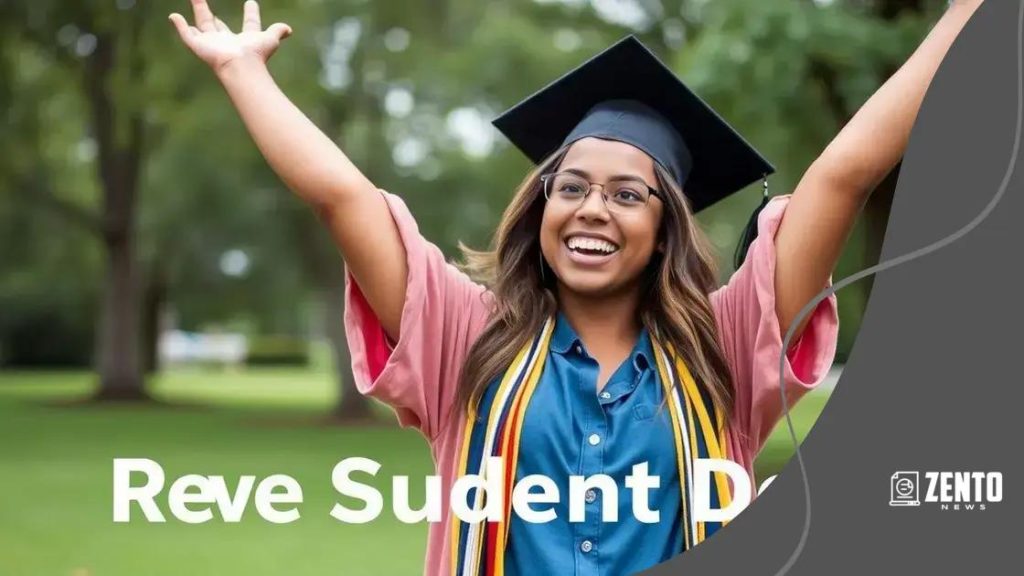Student debt cut: how to reduce your financial burden

Anúncios
Reducing student debt involves strategies like creating a budget, utilizing government programs, and prioritizing high-interest loans to achieve financial freedom.
Student debt cut is a goal many aim for, yet it often feels daunting. What if there are simple strategies that could help? Let’s uncover practical steps to ease this financial pressure and move towards a brighter financial future.
Anúncios
Understanding student debt and its impact
Understanding student debt is essential for anyone considering higher education. This financial burden affects millions of graduates and can impact life choices for years to come. Let’s explore how it arises and the ripple effects it creates in our lives.
What Causes Student Debt?
Student debt primarily accumulates from tuition fees, living expenses, and other costs associated with attending college. Many students rely on loans to cover these financial gaps. As expenses rise, so does the debt.
Effects of Student Debt
The impact of student debt can be profound. For instance, it can delay major life decisions like buying a home or starting a family. Moreover, those burdened with high debt often report higher levels of stress and anxiety.
Anúncios
Key Impacts of Student Debt:
- Delays in home ownership
- Postponing retirement savings
- Limited job choices due to financial pressures
- Increased mental health concerns
Another significant consequence is how student debt influences career paths. Many graduates may choose jobs based on salary rather than passion, just to pay off loans. This financial stress can lead to dissatisfaction in their professional lives.
Additionally, the accumulation of debt can hinder economic growth. When young adults struggle with repayments, they have less disposable income, which affects spending in various sectors of the economy. Addressing student debt is crucial not only for individuals but also for our economy as a whole.
Strategies for reducing student debt
Reducing student debt is achievable with the right strategies. By being proactive and informed, students and graduates can navigate their financial obligations more effectively. Let’s explore practical approaches to lessen this burden.
Create a Budget
One effective strategy is to create a budget. Knowing how much money comes in and goes out each month can help manage expenses. Sticking to a budget allows individuals to allocate funds towards loan repayments without overspending in other areas.
Explore Repayment Options
Another key step is to explore various repayment options available for student loans. Different plans like income-driven repayment and public service loan forgiveness can significantly ease the burden. Choosing the right plan can lower monthly payments and help avoid default.
Consider Extra Payments
Making extra payments towards the principal can reduce the overall interest paid on loans. This strategy shortens the loan term and can save hundreds or even thousands over time. Even small extra payments can make a significant difference.
Key Strategies for Reducing Debt:
- Utilize scholarships and grants
- Work part-time during college
- Refinance loans for better rates
- Stay informed about loan changes
Additionally, using scholarships and grants can ease the financial load from the start. These funds do not require repayment, unlike loans. Applying for scholarships, even modest ones, adds up and can significantly cut costs.
Working while studying can also mitigate debt. A part-time job may provide a steady income which can be directly applied to tuition or living expenses. Every dollar earned can reduce reliance on student loans.
Informed borrowing is equally crucial. Students should research the types of loans available and the best interest rates. Additionally, refinancing existing loans can be an option for graduates looking to lower monthly payments further.
Government programs aiding student debt cut

Government programs play a significant role in cutting student debt. By understanding what’s available, students and graduates can take advantage of these opportunities to ease their financial burdens. Let’s dive into some of the main programs designed to help.
Income-Driven Repayment Plans
One of the most beneficial government programs is the income-driven repayment plan. This program adjusts monthly payments based on income and family size, making it easier for borrowers to manage their payments. Graduates can apply and potentially have their payments reduced significantly, freeing up money for other expenses.
Public Service Loan Forgiveness
The Public Service Loan Forgiveness (PSLF) program is another option for those in qualifying jobs. If you work for a government or non-profit organization, you may be eligible for loan forgiveness after making 120 qualifying payments. This can be a huge relief for many who dedicate their careers to public service.
Teacher Loan Forgiveness Program
For teachers, there’s the Teacher Loan Forgiveness Program. Educators who teach in low-income schools can have a portion of their loans forgiven after five years of service. This program encourages educators to serve in areas that need them most.
Key Government Programs:
- Income-driven repayment plans
- Public Service Loan Forgiveness
- Teacher Loan Forgiveness
- Federal Direct Consolidation Loans
Additionally, federal direct consolidation loans allow borrowers to combine multiple federal loans into one. This can simplify payments and make management easier, although it’s important to understand that it may also affect eligibility for certain forgiveness programs.
Using these government resources can greatly help in handling student debt. It is crucial for borrowers to research and take advantage of every option available to them. By doing so, they can alleviate much of the financial stress tied to student loans.
Personal finance tips to manage debt
Managing personal finance is crucial for reducing student debt. By mastering some basic tips, individuals can take control of their financial situation and prevent future struggles. These strategies can make a significant difference in the way one handles debt.
Track Your Spending
One important step is to track your spending. Knowing where your money goes each month helps you identify unnecessary expenses. This awareness can lead to better financial decisions and more money available for loan payments.
Develop an Emergency Fund
Building an emergency fund is also vital. Unexpected expenses can arise, and having savings set aside prevents the need to take on more debt. Try to save three to six months’ worth of expenses to provide a cushion for financial surprises.
Reduce Unnecessary Expenses:
- Cut back on dining out
- Cancel unused subscriptions
- Find cheaper alternatives for necessities
- Limit impulse buys
It’s beneficial to reduce unnecessary expenses. For example, dining out can be costly. By cooking at home and planning meals, you can save money while still enjoying delicious food. Additionally, canceling subscriptions that are rarely used is an easy way to free up funds.
Another helpful strategy is to prioritize debt repayment. Focus on high-interest loans first, as they accumulate debt the fastest. Paying these off can save a significant amount of money in interest over time.
Recognizing spending habits and adjusting them can have a great impact on one’s financial future. Overall, staying organized and mindful of spending makes managing student debt easier and less stressful.
Planning for a debt-free future
Planning for a debt-free future requires thoughtful strategies and commitment. Many individuals dream of living without the burden of debt, and with deliberate planning, this dream can become a reality. It starts with setting clear financial goals.
Set Clear Financial Goals
Establishing specific financial goals is essential. Decide what a debt-free future looks like for you. Maybe it’s paying off student loans, saving for a home, or having an emergency fund. Clearly defined goals can guide your financial decisions.
Create a Detailed Budget
Another vital aspect is creating a detailed budget. A budget helps you track income and expenses, ensuring that you live within your means. By knowing where your money goes, you can make adjustments that facilitate debt repayment.
Strategies for Financial Planning:
- Regularly review your budget
- Set aside money for savings
- Invest in your skills and education
- Avoid accumulating new debt
Regularly reviewing your budget will help you stay on track. If your financial situation changes, adjust your budget accordingly. Setting aside money for savings should also be a priority. Aim to save at least 20% of your income, if possible. This can create a buffer for emergencies and reduce reliance on credit.
Investing in your skills and education can lead to better job opportunities and higher income. This, in turn, can speed up paying off debts. It’s equally important to avoid accumulating new debt while you’re focused on becoming debt-free. This may require lifestyle adjustments and conscious spending decisions.
Ultimately, achieving a debt-free future is possible through careful planning and discipline. Staying informed about your finances and making wise choices will lead you to financial freedom.
In summary, achieving a debt-free future is a realistic goal for everyone. By setting clear financial goals, creating a detailed budget, and being mindful of spending, you can significantly reduce your student debt. Additionally, utilizing government programs and prioritizing debt repayment can empower you to manage your finances better. With determination and informed decision-making, a prosperous, debt-free life is within reach!
FAQ – Frequently Asked Questions about Managing Student Debt
What are the best strategies for reducing student debt?
Best strategies include creating a budget, exploring government programs, and prioritizing high-interest loan payments.
How can I utilize government programs to help with my student loans?
Programs like Income-Driven Repayment and Public Service Loan Forgiveness can significantly ease your financial burden.
Is it important to track my spending while managing debt?
Yes, tracking spending helps identify unnecessary expenses and ensures that more money goes toward debt repayment.
What should I do if I cannot make my loan payments?
Contact your loan servicer right away to discuss options like deferment, forbearance, or modifying your repayment plan.





